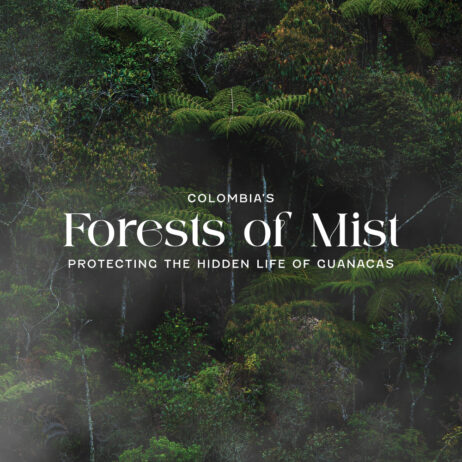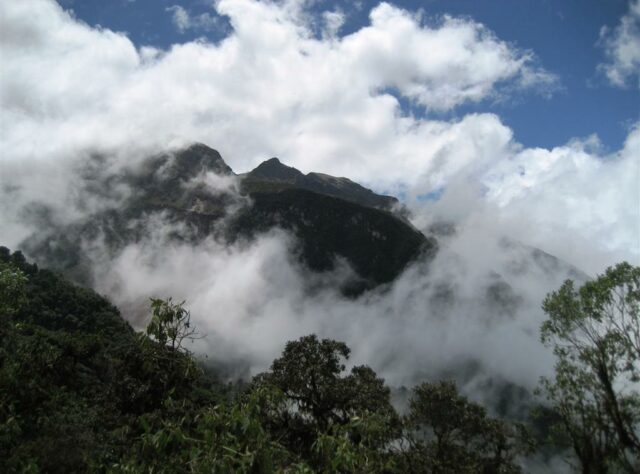
Our Carbon Balanced projects, such as this mountain forest in Ecuador, protect landscapes to store carbon and provide countless benefits to wildlife and people. Credit: Keith Macintosh
The annual United Nation’s climate summit, or Conference of Parties (COP), is nearly upon us. With our planet poised on the precipice of a climate and biodiversity disaster, we spoke with our Carbon Balanced Programme Manager, Mary McEvoy to explore her thoughts before COP28 begins.
Why is it so important now for world leaders to work together to tackle the climate crisis?
Since 1995, these climate talks have been taking place, but have not achieved nearly enough – global temperatures have already risen by 1.2°C due to manmade greenhouse-gas emissions. In March, the International Panel on Climate Change (IPCC) issued their latest report, giving a ‘final warning’ and saying “only swift and drastic action can avert irrevocable damage to world”.
With 2023 being the hottest year on record, the dire warnings from the scientific community over the last 50 years are now playing out in the most devastating ways throughout the world – in that time we have witnessed the loss of 69% of the worlds biodiversity.
Without unity and alliance between nations, these effects will only continue to worsen. Now, more than ever, the world needs inspirational and decisive leaders to help curb the worst effects of global warming.
What do you expect will come from these talks, and what would you like to see?
I want to see the world’s leaders united in taking the climate crisis seriously and prioritising people and the planet over profits. We are likely to hear many impressive headlines announced during COP28, however I hope to also see accountability on these “commitments”, as we have already seen some backsliding since Glasgow’s COP26.
As COP28 will see the first Global Stocktake (GST) – a way of measuring progress made towards the 1.5°C target agreed in the Paris Agreement, I hope this will show each country what has worked well and what they must improve for their next climate pledges, or Nationally Determined Contributions (NDCs).
There needs to be legally binding rules on how the world is going to fund the emissions reduction methods. The funding-gap is crippling countries most vulnerable to the effects of climate change, which are often also the home of some of the world’s richest biodiversity.
With that in mind, I hope there is also a hurry towards Nature Based Solutions – the practice of using healthy, biodiverse ecosystems to tackle social, economic, and environmental problems to the climate crisis.
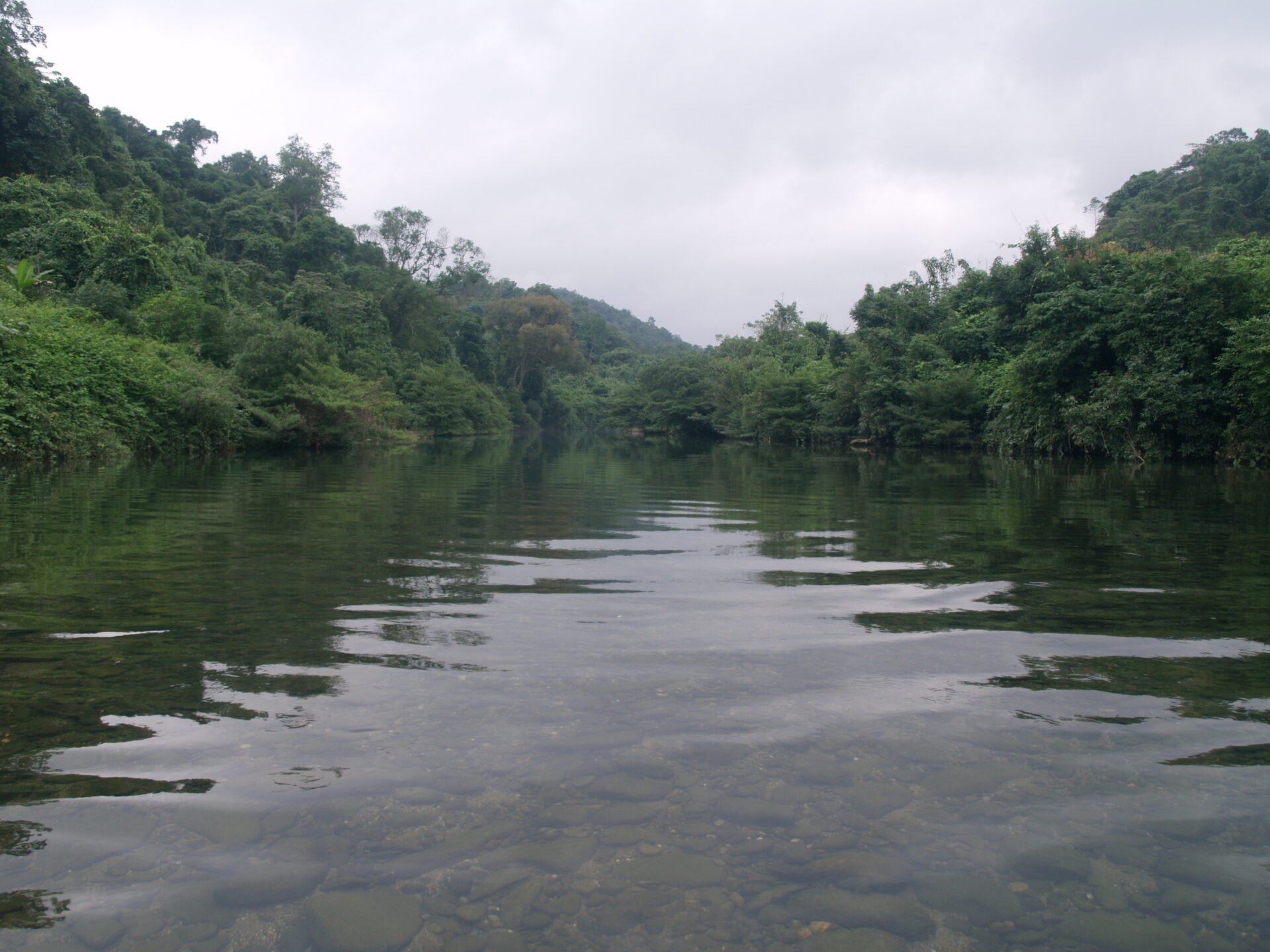
Nature based solutions offer carbon storage, food sources, clean water, temperature regulation. Credit: Natalie Singleton
Can you give us an introduction to WLT’s Carbon Balanced programme and why it is so important?
WLT’s Carbon Balanced programme funds Nature Based Solutions by working with conservation partners all over the world to help set up long-term projects. These projects can transform entire landscapes, protecting them from deforestation, farming damage, and urban sprawl. We turn this into a carbon project by measuring the amount of carbon dioxide that has been kept from entering the atmosphere as a direct result of the conservation projects. This method is called Reducing Emissions from Deforestation and Forest Degradation (REDD+) – this overall approach is important because it tackles both the climate and biodiversity crisis.
WLT supports our partners in Mexico, Ecuador and Vietnam based on a Carbon Balanced Standard that ensures all projects can benefit from long-term, sustainable finance. Elsewhere, such as with our partner in Guatemala, we purchase Voluntary Carbon Units, certified by Verra, and sell these on to our committed corporate supporters.
How do you think COP28 might impact the work that WLT does as an organisation and with the Carbon Balanced programme specifically?
Regardless of the COP28 outcomes, WLT will remain committed to our mission of helping people across the world protect and restore their land to safeguard biodiversity and the climate.
For Carbon Balanced specifically, there may be some impacts at individual country level as governments work through the result of any new Article 6 rules and recommendations – we will follow this process as closely as we can.
Additionally, I hope COP28 will bring home the urgency of the climate situation to even more people and motivate actions from individuals and businesses, up to the national scale.
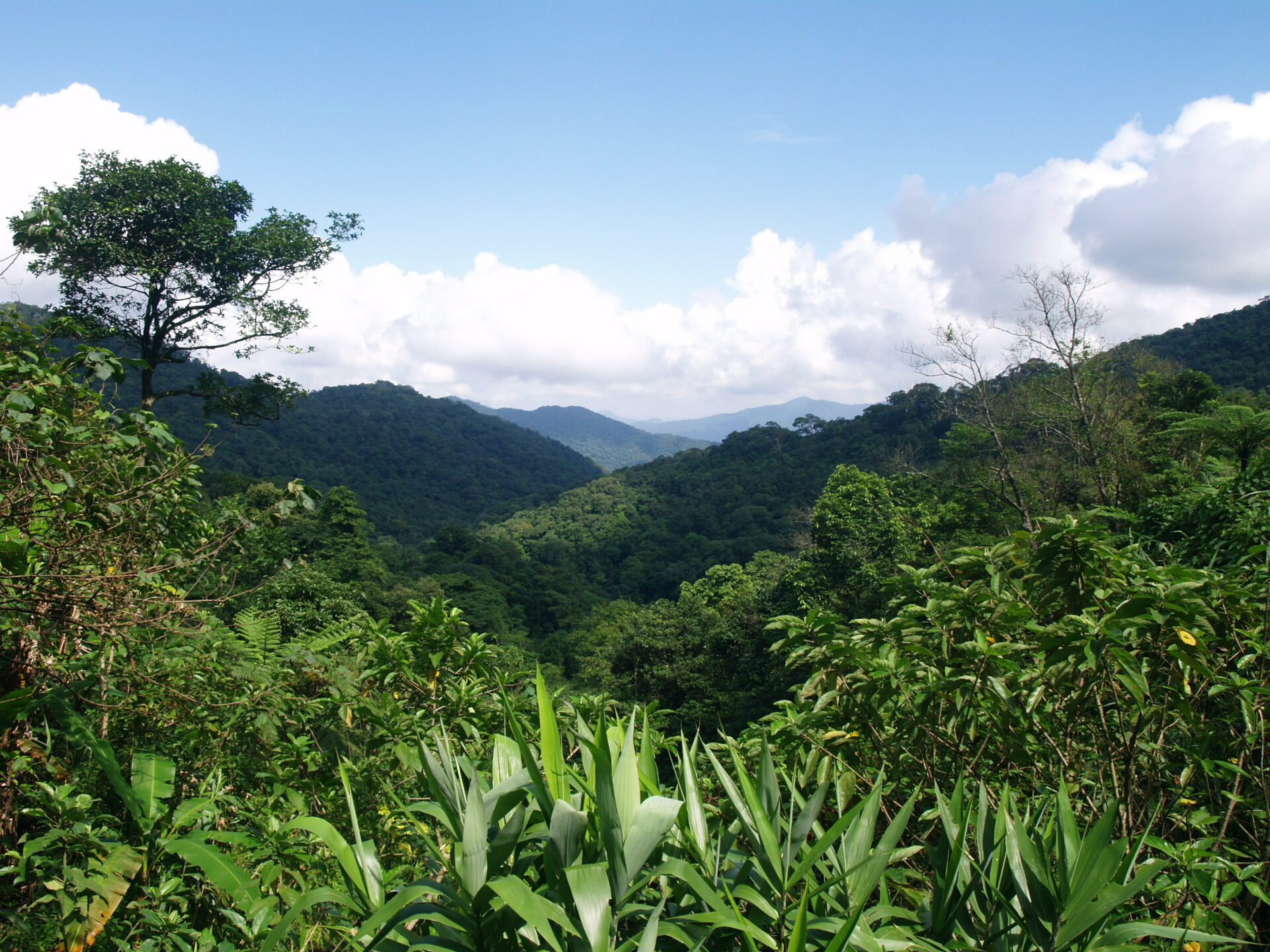
Carbon Balanced Reserve, Vietnam. Credit: Natalie Singleton
There is expected to be a focus this year on organisations reducing their own carbon footprints. What advice can you give to businesses about their emissions?
Our process for carbon balancing can support organisations of all sizes with their sustainability strategies. WLT work with companies to help them balance the unavoidable emissions of their activities through a 3-step process of Measure, Reduce, and Balance.
Our Carbon Calculator for businesses adheres to the GHG Protocol Corporate Standard and caters for a wide range of footprint requirements for businesses working towards net zero. WLT can provide full guidance notes and a tutorial video and are also happy to receive footprint reports from larger companies to help review their methods. We recommend companies calculate their past historical footprint as well as their annual emissions.
If you want to get started or find out more, you can contact us.
With such big talks happening, it is easy for individuals to feel powerless – what advice can you give to people who want to take action and make a difference?
I would advise anyone feeling powerless to assess what influence they have. Many of us have the privilege of being able to choose what we eat, where we go, who we bank with, what we buy, what we talk about and who we would like to see in positions of power. All these choices can impact our future, whether that is helping to spread reliable information, helping to support sustainable businesses, or directly helping to reduce our own impacts.
Our Carbon Calculator for individuals provides a simple way to calculate the carbon impact of your flights, household or transport and is a positive and tangible step you can take for the planet.
Why should businesses and individuals choose to buy carbon credits through WLT?
WLT is a non-profit organisation building close, long-term relationships with some of the most hard-working and inspirational conservation NGOs in the world. Throughout our 34-year history, we have been committed to funding the most impactful and urgent conservation projects on behalf of our donors. The aim of our Carbon Balanced programme is no different, it is just another means of getting some truly excellent conservation done!
When you choose to buy carbon credits with WLT, you are choosing high-quality and closely monitored forest carbon projects in some of the world’s most biodiverse places. WLT’s care and commitment to these projects and the people making them happen on the ground provides me with constant inspiration and hope and I think WLT supporters feel that too.
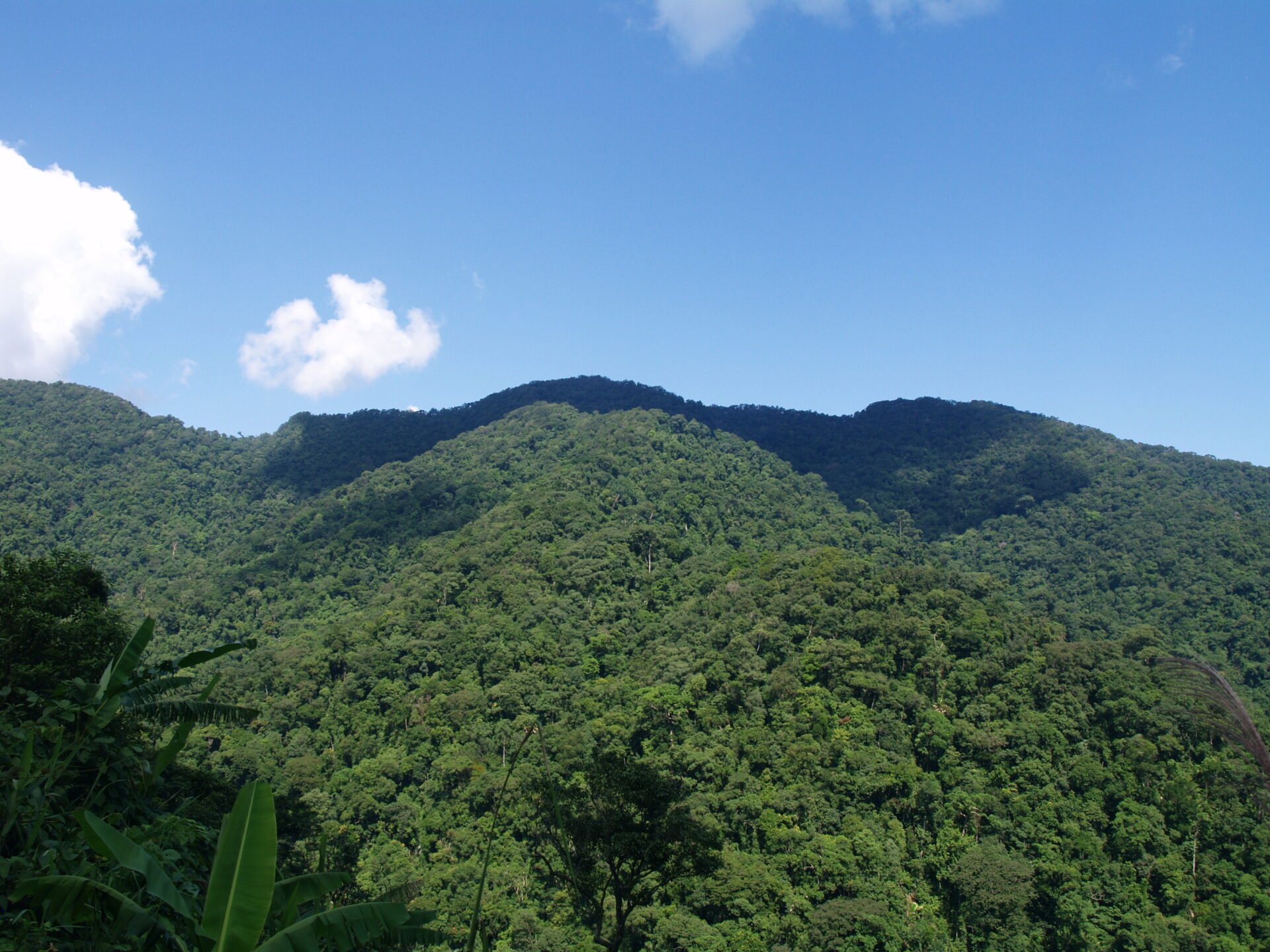
Landscapes protected by our Carbon Balanced program are safeguarded from threats such as deforestation, farming pressure, and urban sprawl. Credit: Nancy Singleton
One of the main themes for COP28 is inclusion. Can you tell us why this is such a key topic for WLT?
It is encouraging to see inclusion taking such a key role during COP28. For far too long, countries in the global north took it upon themselves to ‘find solutions’ for countries in the global south. Often without fairly involving the local, regional and national stakeholders they aimed to ‘help’.
WLT believes that the people living on the frontiers of environmental breakdown are the most likely to know what solutions are best for their circumstances. That is why we always work with a local partner organisation, who work diligently with all local stakeholders to ensure the maximum impact and likelihood of success for their projects.
WLT understands that inclusion is not just about local communities, but about the sub-groups of often marginalised people within them. WLT’s partners seek to engage with all parts of communities regardless of age, race, ethnicity, sex, religion, wealth, livelihood or any other defining features.
Developing countries are disproportionately impacted by the climate crisis and the UN Environment Programme has found that pledges to help poorer communities adapt to the effects of climate change are falling short. How does WLT’s work help with this?
The science is clear that maintaining existing forests is one of the best defences against the worst effects of climatic change. WLT’s Carbon Balanced programme is directly contributing to maintaining this benefit to local communities in and around the forests protected by the programme.
Carbon Balanced is also helping to grow these forests. Whether through direct reforestation efforts or by naturally boosting their carbon stocks, we improve the forest’s own resilience against climate change too.
In terms of adaptation, WLT’s partners support a whole range of activities with local communities. From support of rainwater harvesting, to supplying drought-resistant crop seeds, to financing transitions to sustainable livelihoods.
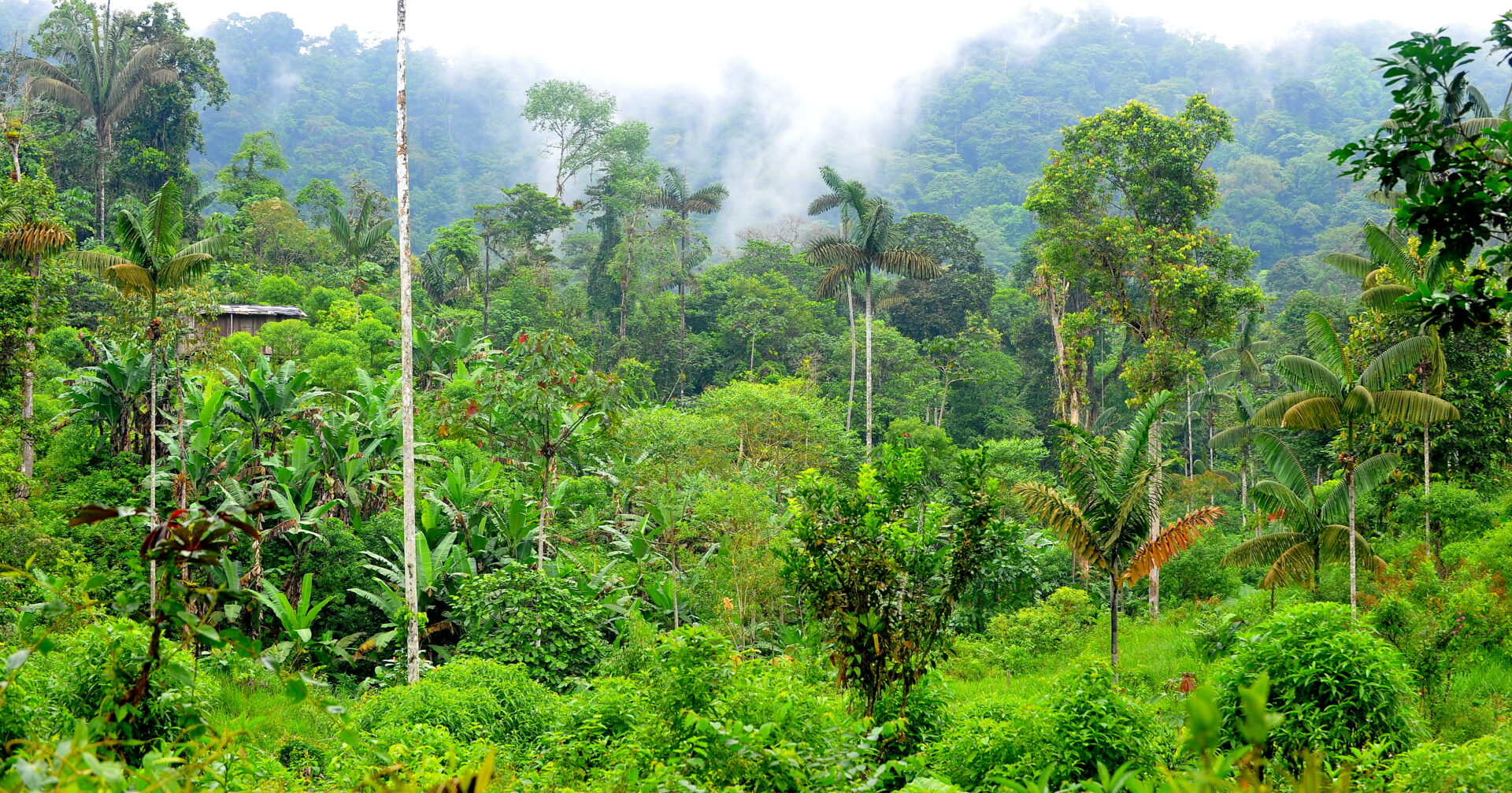
Protecting and restoring standing forests provides havens for some of the world’s most threatened biodiversity. Credit: Nancy Singleton
Do you think enough is currently being done to tackle the UK’s carbon contributions?
I am extremely disheartened by some attitudes in the UK to the climate crisis – with some still prioritising profit over planet, for example most recently with the go-ahead to exploit the Rosebank oil field in the North Sea. We are a nation of capable, motivated and innovative problem solvers, so being led towards continued fossil fuel dependence is truly disappointing.
UN Secretary General António Gueterres stated “Our world needs climate action on all fronts -everything, everywhere, all at once.” – I think the UK should be facilitating that concept when it comes to mitigating and adapting to climate change.
This should include prevention of any further damage to our remaining natural places, restoration of native habitats to vastly bolster our carbon sequestration potential and doing everything possible to bring about renewable energy solutions. All solutions should be jumped on – there literally cannot be enough action on this and anything we do now will pay off in the future, both in terms of risk reduction and a thriving green economy.
The global environmental crises can be overwhelming. Can you tell us about how the work of WLT and the Carbon Balanced programme gives you hope for the future?
When I first started at WLT, I was humbled by the immense efforts of our partners around the world to protect and restore the natural world. They achieve incredible results in the most difficult of circumstances and, quite often, on shoestring budgets. I genuinely connect with these people working so hard on all our behalf’s, and I know their collective influence is growing and strengthening. Today, over 15 years later, I still find these amazing people and places a source of endless inspiration.
The work of the Carbon Balanced programme is giving this work even greater context in today’s world. The tangible benefits of this conservation, in terms of emissions reductions, are highly gratifying.
Collectively this gives me such hope for the future, as all the youth and children in our spheres of influence grow up so much better informed and equipped to make responsible choices for their own futures. I know we can all help make their futures as bright as possible – if we, and most importantly our governments, act. Now.
